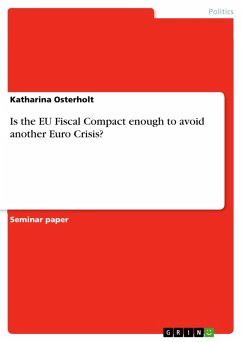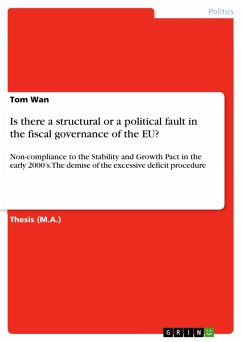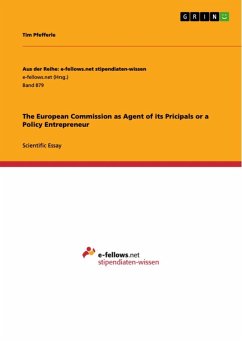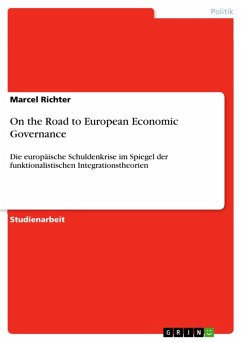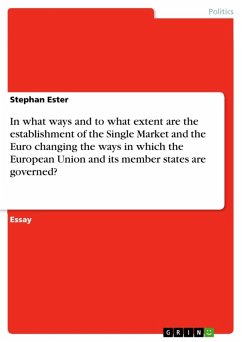Seminar paper from the year 2012 in the subject Politics - Topic: European Union, grade: B bzw. 1,7, BI Norwegian Business School, course: The EU Policy Process, language: English, abstract: This paper investigates the evolvement of the Fiscal Compact out of the Maastricht stability criteria using liberal intergovernmentalism and economic theories and gives an outlook into a possible future. The new Fiscal Pact includes an automatic mechanism that sets in directly when a member state reaches a high public debt or government deficit. Furthermore, the EU Court of Justice has the competence to punish countries that have breached the treaty. This crisis has shown that the integration between the euro zone members states is increasing, especially due to the need of fiscal and economic surveillance. The liberal intergovernmentalist approach explains how the increasing cooperation between the member states results into more enforcing supranational rules but also on why the EU might still be considered as a weak institution. This paper focuses on the underlying economic problems and how the euro member states seem to be able to cope with the crisis. It shows how the Stability and Growth Pact in the Maastricht treaty has not been enough and that due to the crisis, economic and fiscal integration as well as enforceable rules are getting more important and are leading to a stronger integrated monetary union.
Dieser Download kann aus rechtlichen Gründen nur mit Rechnungsadresse in A, B, BG, CY, CZ, D, DK, EW, E, FIN, F, GR, HR, H, IRL, I, LT, L, LR, M, NL, PL, P, R, S, SLO, SK ausgeliefert werden.

